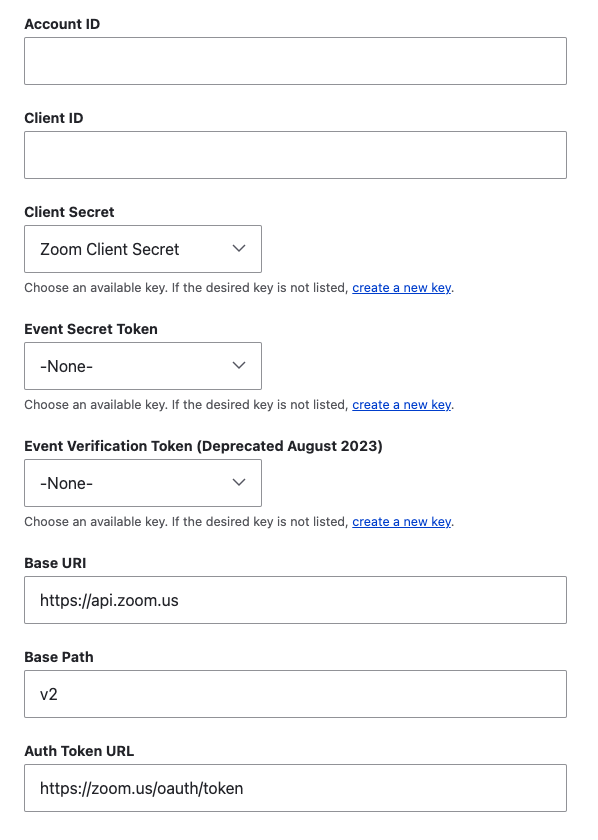Upgrading Zoom API Module from 2.x to 3.x
Last updated on
19 September 2023
In June 2023, Zoom is deprecating JWT apps. The 2.x version of the Zoom API module supported JWT apps and the 3.x version will support the new Server-to-Server OAuth App Type.
Converting from 2.x to 3.x.
With Zoom no longer supporting JWT, we had to rearchitect several parts of the Zoom API module.
- In your project, run
composer require "drupal/zoomapi ^3.0" - Run a database update to enable apitools module.
- Create a Zoom Server-to-Server Oauth App - The big difference is setting up scopes (or specific permissions) for the API endpoints your app will be using.
- Reconfigure your Zoom API module in Drupal. There are a few new options that are needed for the Server-to-Server Oauth App type.

- Adjust your code usage. There are some breaking changes, but adjusting code should be relatively easy. The 3.x version is leveraging another contrib module called APITools that offloads the client and configuration and handles the new Oauth requirements.
2.x to 3.x Client code examples
The main advantage to using the Zoom API client is that it automatically handles authentication for every API request.
The big changes from 2.x to 3.x are:
- Getting rid of the generic
requestin favor of specificget,post,patchanddeletemethods. - The first parameter will be the Zoom endpoint without the slash at the beginning. Example:
users - Passing in Guzzle options as the second parameter.
// The service name remains exactly the same \Drupal::service('zoomapi.client');
// If you were statically calling or injecting, there are no changes.
$client = \Drupal::service('zoomapi.client');
// Get Example.
// The old request method in 2.x.
$client->request('GET', '/users');
// The new get method in 3.x.
$client->get('users');
// Notice that the / slash before the endpoint is removed as well.
// Post Example.
$webinar_id = $data['zoom_webinar_id'];
$registrant = [
'email' => $data['email_address'],
'first_name' => $data['name']['first'],
'last_name' => $data['name']['last'],
'org' => $data['organization_name'],
];
// The old request method in 2.x.
$client->request(
'post', '/webinars/' . $webinar_id . '/registrants',
[],
$registrant
);
// See https://docs.guzzlephp.org/en/stable/request-options.html.
// Notice the addition of the json key that will automatically convert the array to json upon posting.
$options = [
'json' => [
'email' => $data['email_address'],
'first_name' => $data['name']['first'],
'last_name' => $data['name']['last'],
'org' => $data['organization_name'],
],
];
// The new post method in 3.x.
$client->post("webinars/{$webinar_id}/registrants", $options);Help improve this page
Page status: No known problems
You can:
You can:
- Log in, click Edit, and edit this page
- Log in, click Discuss, update the Page status value, and suggest an improvement
- Log in and create a Documentation issue with your suggestion
 Support for Drupal 7 is ending on 5 January 2025—it’s time to migrate to Drupal 10! Learn about the many benefits of Drupal 10 and find migration tools in our resource center.
Support for Drupal 7 is ending on 5 January 2025—it’s time to migrate to Drupal 10! Learn about the many benefits of Drupal 10 and find migration tools in our resource center.









